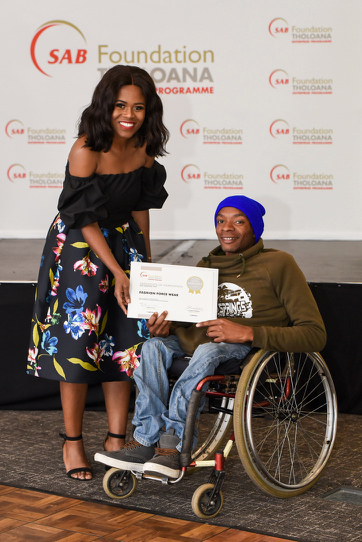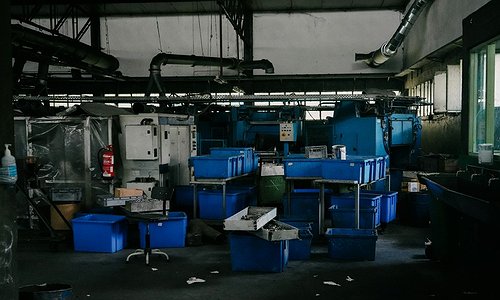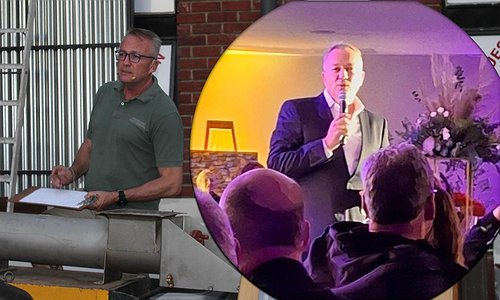Entrepreneurs with disabilities want training not pity
In a world that frequently sees past people whose bodies don’t look or work like theirs, entrepreneurship offers persons with disabilities a liberating option. In particular because unemployment runs at a frightening 80%, running one’s own business provides vital life supporting employment, as well as the dignity and affirmation that comes with transcending the label of “disability”.
In the last three years, the SAB Foundation Tholoana Enterprise Programme has provided an unusual chance for a handful of South African entrepreneurs with disabilities to reimagine their entrepreneurial careers.

his graduation certificate.
Since the programme’s inception in 2015, a number of entrepreneurs with various forms of impairment have participated, alongside their non-disabled colleagues. “We specifically invite entrepreneurs with disabilities to participate,” says Bridgit Evans, Director of the SAB Foundation. “We want them to have an experience that is not defined by their disability yet still recognises the particular challenges they face.”
All participants gain business skills from the workshops which are consolidated with follow up support from mentors, e-learning, group learning and telephone support. Additionally, as business owners put systems into place that enhance their sustainability and success, they are helped to gain access to markets and funding opportunities. “Participants are selected for their business ability, rather than their physical disability,” says Evans. “They are supported in overcoming the substantial challenges they face while carving out a space for themselves in the world of work.”
The first intake in 2015 saw the inclusion of Nthabiseng Molongoana, who runs Lentha’s Lodge, a guesthouse in Bloemfontein catering for guests in wheelchairs. Six months into the programme, she shared her reflections:
“I have never felt more confident. I have the tools to succeed. Never before had I complied with all the basic legal requirements (SARS, annual returns, UIF, COIDA registration etc.) and as a result I sleep and wake up with a clear conscience. My mentor keeps me accountable and provides me with guidance. I am able to keep track of finances using SMEasy and I now have a BEE certificate in place. I am more honest with myself regarding my financial responsibility – and even irresponsibility!”
The second intake in 2016 brought two participants with a disability out of a cohort of 44. Thabiso “Chairman” Makhobo, of Fashion Force Wear, embroiders golf shirts and caps, and Itumeleng Matshego, a person with Albinism, runs Legratron, a logistics and tracking operation. Matshego said explicity, “We don’t want to be treated as charity cases, included in a programme or event only because we’re disabled.” He also appreciated being given the content that was being projected onto the screen as a legible handout. “People with Albinism struggle to see,” he said. “That made a difference.”
Despite internal and external obstacles, these two companies increased their combined turnover from a meager R1,725 per month to R21,492 per month over the 20 months of their participation and created five permanent and nine casual jobs.
The latest intake in 2017 saw participants with disabilities showing a remarkable performance. Magaret Nswandwe, who was incapacitated in a car accident now farms in Barberton. Alex Msitshana of Deaf Empowerment Firm works to create employment opportunities for others with disabilities.
Catherine Wijnberg, CEO of Fetola, who implements the programme on behalf of SAB Foundation said, “These two companies have increased revenue from R80,781 to R467,741; which represents a staggering 479% increase. The remarkable fact is that these companies now support 57 jobs. Furthermore, Deaf Empowerment is creating secondary jobs through educating and recruiting deaf individuals.”
Evans is excited by their remarkable success. “By specifically placing persons with disabilities in a programme that focuses on their business, rather than on their disability, the methodology empowers and liberates all the entrepreneurs from a range of challenges that have kept them stuck,” she says. “We incorporate them into mainstream programmes because we believe in the inclusive model. We want to support them in turning over the cards they’ve been dealt.”
Despite this small sample, the success points to a model that enhances the quality of life for those who exist in the margins of society. The Tholoana programme aims to share this unusual methodology on a broader scale and hopes that more applicants who are self-employed will come forward.
“We aim to unlock the doors for many more people with disabilities,” said Evans. “Their latent potential is an untapped resource that can benefit the non-disabled in a way that is profoundly inspiring!”
“We want entrepreneurs to take their rightful place at the economic table where they can enjoy optimal personal development and financial liberation that comes with running a successful business,” says Evans.
Dr William Rowland, who serves on the SAB Foundation board and is himself a blind person, says, “Given that the unemployment rate for persons with disabilities is more than double that of the general population, entrepreneurship offers an escape from poverty and an opportunity for full inclusion in our society.”
Alex Msitshana says, “It is a wonderful feeling to be part of the programme on my own merit as an entrepreneur. My abilities have been recognised.” Alex, who was recently a finalist in two categories of the Gauteng Woman Excellence Award, says, “Tholoana’s inclusion of persons with disabilities is a model to emulate – because I’m getting help to strengthen my capabilities. This programme is not about pity. It’s about getting a chance to show your true colours.”
Enhancing the dignity of entrepreneurs with disabilities, helping them to engage with employers, customers and stakeholders on an equal footing is – if you can forgive the ableist metaphor – an opportunity not to be missed.
To find out more about the Tholoana Enterprise Programme for entrepreneurs with disability, visit the SAB Foundation website: www.sabfoundation.co.za. Please register your interest via email



